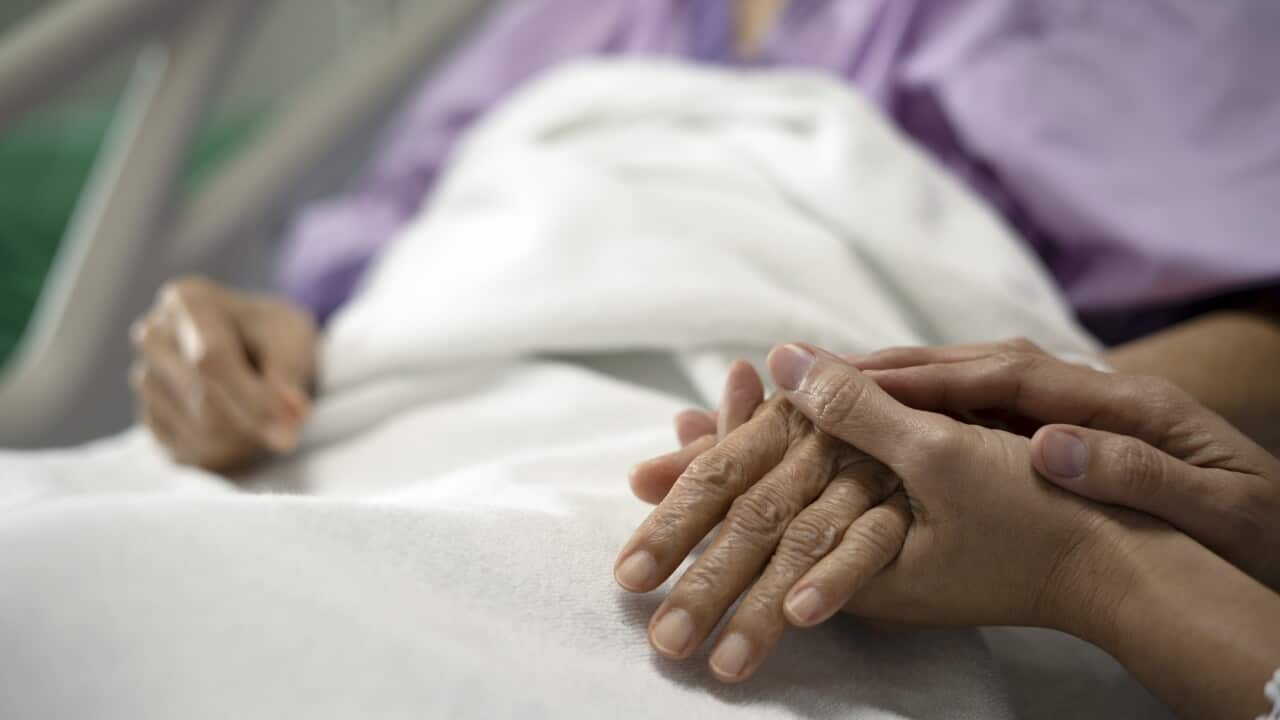Key Points
- People with a terminal illness in NSW are now able to apply to end their life via voluntary assisted dying.
- Two medical professionals must approve an application, which is then considered by a board.
- A voluntary assisted dying advocacy group expects a number of people to apply within the coming days.
As a long-time advocate for assisted dying in NSW, Shayne Higson has spoken to numerous people suffering from terminal illnesses who wished for a peaceful death.
That's now an option, thanks to voluntary assisted dying (VAD) laws that came into place on Tuesday, bringing NSW into line with all other Australian states.
"It's a huge relief for me after 11 years of advocacy, but also for all the people in this state who have been waiting for this," Higson, who is also the CEO of Dying with Dignity (DWD), said.
After an 18-month implementation period, during which the framework as to how the laws would operate was set,
The practice is not yet legal in the Northern Territory and ACT.
How VAD laws will work in NSW
Adults with a terminal diagnosis who have up to six months to live or those with a neurodegenerative disease and a life expectancy of up to 12 months will be able to apply to voluntarily end their lives in NSW.
Approval is to be granted by two independent doctors as well as a board, made up of five members appointed by the health minister and attorney-general.
NSW Health says applicants must also be "experiencing suffering that can’t be relieved in a way that is acceptable to them."
Applicants must be acting voluntarily and free of duress, and their VAD request must have been made continuously over a period of time.
While part of the criteria for eligibility is that a person must have been living in NSW for at least 12 months, the board may provide residency exemptions.
Approval under the system will allow the eligible person to take or be given medication to bring about their death at a time that they choose.
A more 'peaceful death'
Higson said certain diseases, such as the neurodegenerative illness , could be "unbearable" for a person during their last few weeks of life and VAD could provide relief from that suffering.
She said she had been in contact with about a dozen people with terminal illnesses in NSW in recent months who had expressed interest in using the laws.
Higson said a handful of them may make applications in the coming days.
Some of them are no longer alive to make that choice, she said.
"It would be fair to say that they didn't get the peaceful death that they hoped for," she said.

Dying with Dignity NSW CEO Shayne Higson welcomes the new voluntary assisted dying laws in the state. Source: Supplied / Dying with Dignity NSW
She said that, while DWD was happy with the laws that had been introduced, she did expect some amendments to be made in the future.
The organisation would like to see all states open eligibility to all , rather than restricting it to six months in many cases.
"The experience from and that have had the laws for a number of years now shows that people quite often leave it too late to apply. They're applying for a VAD when the suffering has become unbearable and quite often that is when they're literally within weeks or days of their death, and so some people miss out," she said.
"It would be more compassionate, more humane, more realistic to allow people to access that when their prognosis is less than 12 months, and that way they can get through the application process but it doesn't mean they have to take the medication at that time."
Another change DWD would like to see would have to occur on a national level.
"There's a federal law that currently prohibits the use of telehealth when it comes to the legal option of voluntary assisted dying," she said.
"It would be good if at least some of those steps could be done via telehealth."
Higson said a private member's bill that could address this had been introduced into parliament.











